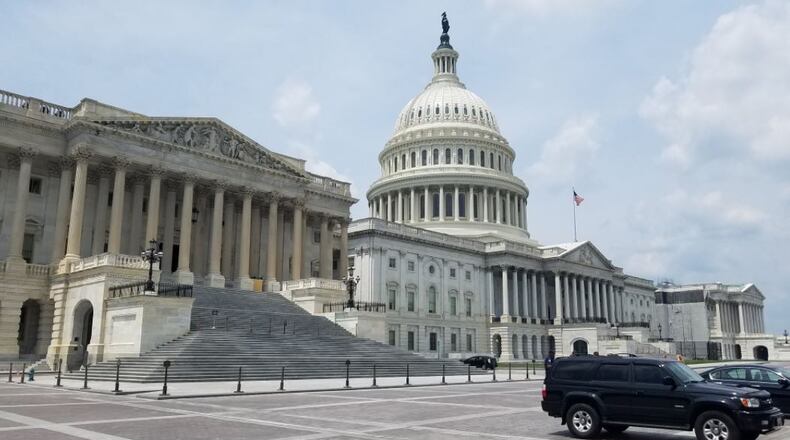In other words, you can't just cut taxes - which technically deprive the federal treasury of revenue, and therefore increase the budget deficit - you have to find revenue to pay for those tax cuts.
And Republicans on the House Budget Committee were actively trumpeting that message.
On Thursday, House Speaker Paul Ryan was touting tax reform during a trip to a New Balance factory in Massachusetts.
"First and foremost, we’re going to cut your taxes," the Speaker said.
But when a tax plan is deficit neutral - a cut for one person means that revenue must be found somewhere else to offset that reduction - in other words, some other tax increase, mainly one would assume by taking away deductions in the tax code.
And many veterans of Capitol Hill say that's not going to be easy.
"I spent much of 2011-16 negotiating tax reform proposals in the Senate," said Brian Reidl, a Senior Fellow at the Manhattan Institute, who used to work for Sen. Rob Portman (R-OH).
"Revenue-neutral tax reform will make health care look easy," Riedl said in a post on Twitter.
Key Republicans have made clear that they want to put together a proposal that dramatically simplifies the current tax system.
"So 96% of the people can do their tax return on a single postcard size," said House Budget Committee Chair Rep. Diane Black (R-TN).
To do that, you would lower tax rates, and then most likely eliminate or reduce tax deductions - and that's where things get tricky.
Do you get rid of the deduction for mortgage insurance? Lots of people talk about that, but it always goes nowhere.
What about the deduction for state and local taxes? That has bipartisan opposition in and around big cities on the East Coast.
The tax break on employer provided health care benefits? That went nowhere fast in the negotiations over the GOP bill to overhaul the Obama health law.
End or restrict the business interest deduction? Hard to imagine.
Deficit neutral tax reform - it sounds wonky. But it's a pretty important development that may rein in the scope of a GOP tax plan.
About the Author
